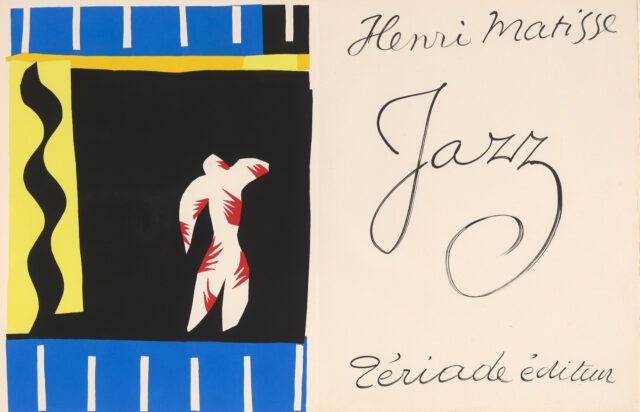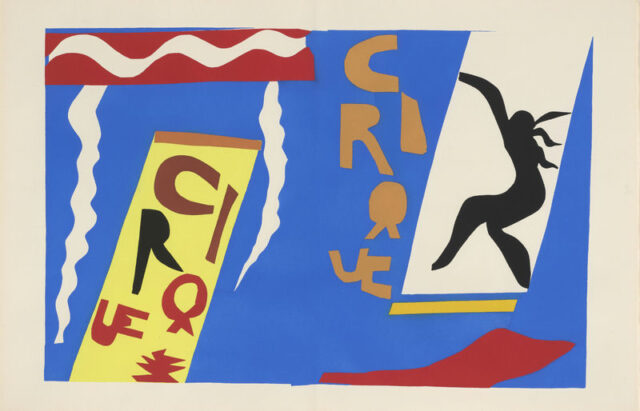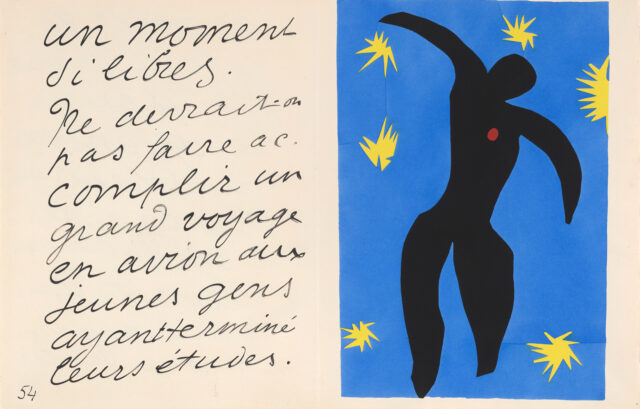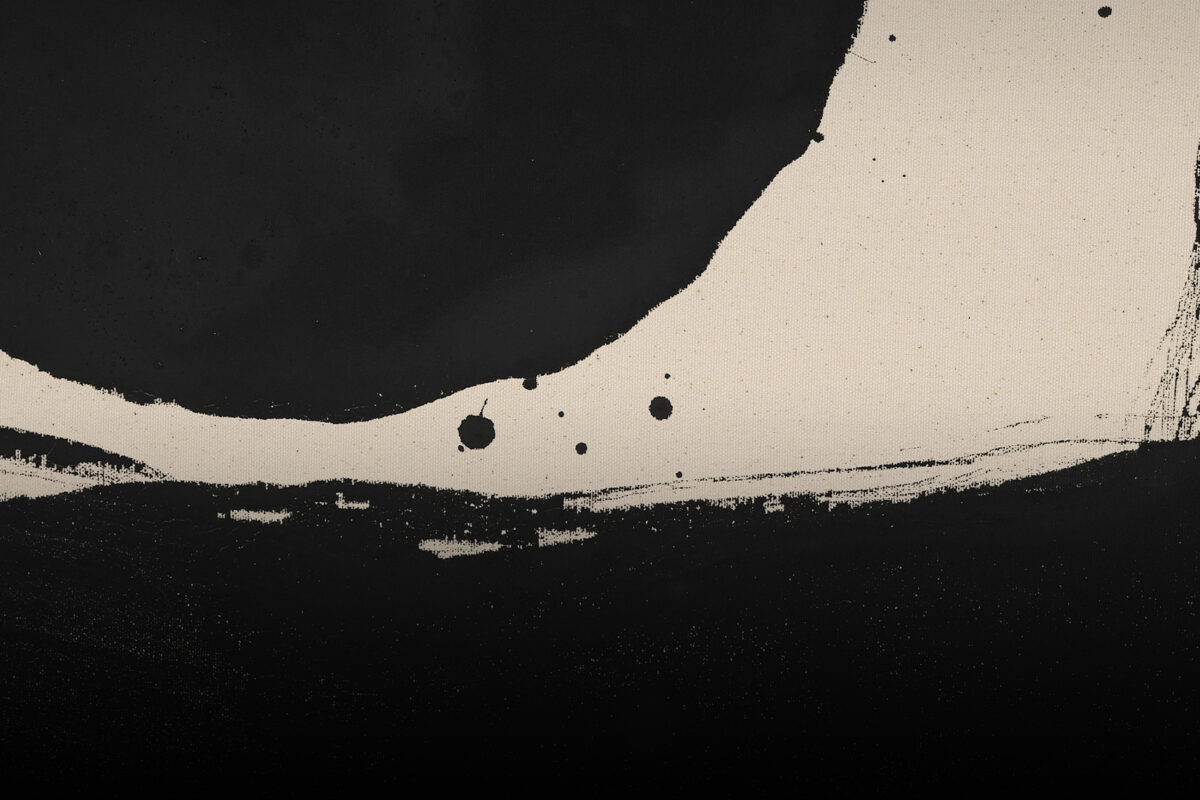The French artist’s influential “cut-outs” arrive at the de Young
Words by DAVID NASH

Remaining mostly chairbound and bedridden following surgery for intestinal cancer in 1941, 74-year-old Henri Matisse proved immobility was no match for his artistic genius when he began creating colorful collages cut from paper. For the next two years, with the help of assistants, he worked arranging these decoupaged collages — often referred to as the “cut-outs” — while isolated in the South of France during the war. What initially were intended to become covers for the modernist Parisian art magazine Verve became a limited-edition art book titled Jazz. Published in 1947 by Tériade, the artist’s portfolio included 20 color prints accompanied by handwritten notes by Matisse that chronicled the entire creative process. Considered to be his most important graphic artwork, the pochoirs depict themes related to the circus and theater, from horses and ringmasters to trapeze artists and swimmers. Now these works can be viewed all together at the de YOUNG MUSEUM’s exhibition Matisse’s ‘Jazz’ Unbound alongside other works on paper by the artist from the institution’s collection. Take this rare opportunity to see the result of what Matisse referred to as “drawing with scissors.” Jan. 25–Jul. 6. 50 Hagiwara Tea Garden Dr., S.F., 415-750-3600; famsf.org.



This story was originally published in the January 2025 Top 5 newsletter.
Discover more CULTURE news.



